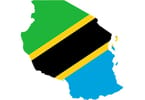The most notable new entrant trying to break into the Canadian airline industry says it’s being weighed down by increased red tape at the Canadian Transportation Agency.
Tim Morgan, one of the co-founders of WestJet Airlines Ltd., says the agency’s increased scrutiny over foreign ownership limits has presented a major hurdle obtaining a licence for his latest venture, tentatively named NewAir & Tours.
Mr. Morgan maintains that all 22 of the initial NewAir investors, who contributed $13-million in seed money this fall, are wholly Canadian owned – including the 10 corporations and trusts involved. But he said those investors have been subjected to an unprecedented level of scrutiny from the CTA – something he didn’t see in the four other applications he has filed in the past decade, including WestJet’s.
“What I’m concerned about is a bureaucratic institution creating rules as they go along,” he said. “It’s a concern because I need to start the rest of the process. This is simply holding it up.”
Under Canadian law, foreign ownership in a Canadian airline is capped at 25% of voting shares. Upstart airlines, among other requirements, must provide legal documentation that their investors fall within those foreign ownership caps.
Up until recently, the CTA simply required affidavits from the applicant to that effect, according to Bill Clark, NewAir’s regulatory council. However, more recently, the CTA “arbitrarily” began “climbing further up the tree,” requiring affidavits from each individual and institutional investor, he said, including affidavits from each of their directors, and in some cases, even requiring that trusts do the same for their beneficiaries in order to establish de facto control of the airline.
Every investor is subjected to the same level of scrutiny, regardless of whether they are investing 1% or 100% in the airline, Mr. Clark said.
“This has happened since WestJet,” he added. “I know this because I did WestJet’s.”
Ironically, the increased scrutiny comes at a time when the federal government is considering raising the foreign ownership limits on Canadian airlines to 49%, according to sources in Ottawa. In fact, one of the primary objectives of the Competition Policy Review Panel is to receive input from the industry to that effect.
Mr. Morgan says the newfound CTA rigor is not only onerous, but has tied up NewAir’s application for nearly five months since the initial paperwork was filed. It is also putting pressure on Mr. Morgan and his partner’s ambitions of having the airline in the sky in time to catch the tail end of the peak travel season this summer.
“Now if they have suspicion, or they think that someone is not Canadian, and they have reason to believe someone is not Canadian, I could understand them digging into it,” Mr. Morgan said. “But people won’t invest if the process is too onerous.”
While Mr. Morgan said the length of the process has yet to scare off any initial NewAir investors, it is becoming a source of frustration for him.
Under federal regulations, the CTA has 120 days to render a decision after an application is filed. But that period only begins once the agency has all the documentation it needs to make a decision, according to Jadrino Huot, CTA spokesman.
“The CTA will take the time it needs to render a fair and equitable decision,” he said. “We won’t render a decision after 119 days if we don’t have all the documentation in hand just to say that we have met that deadline.”
But, he denied the CTA has made any changes in what it requires from applicants.
“It would be incorrect to say the test has become more stringent,” he said. “It could be that their own structures are more complex with funds and trust funds, and individuals injecting money into it. So, that is why it may appear to be more stringent.”
He noted that Toronto Island upstart Porter Airlines recently underwent the same level of scrutiny in its licensing process.
While Robert Deluce, Porter chief executive, acknowledges that the process was very thorough, he said it was not overly onerous. Nor was it the most difficult application process he has endured, he said, adding that process for getting Canada 3000 off the ground in the late 1980s was much worse.
“I didn’t see the process as being any more difficult than anything we had been through before,” he said.
financialpost.com
WHAT TO TAKE AWAY FROM THIS ARTICLE:
- Ironically, the increased scrutiny comes at a time when the federal government is considering raising the foreign ownership limits on Canadian airlines to 49%, according to sources in Ottawa.
- Nor was it the most difficult application process he has endured, he said, adding that process for getting Canada 3000 off the ground in the late 1980s was much worse.
- Morgan and his partner’s ambitions of having the airline in the sky in time to catch the tail end of the peak travel season this summer.






















